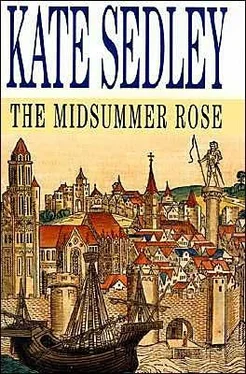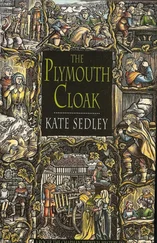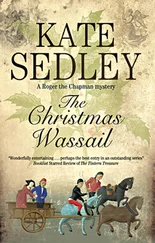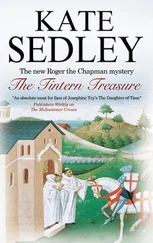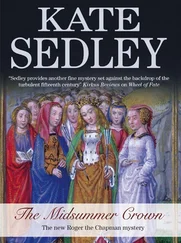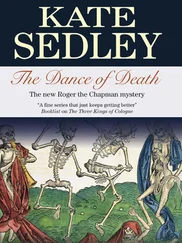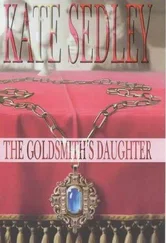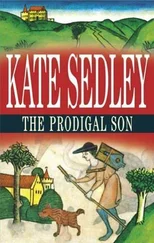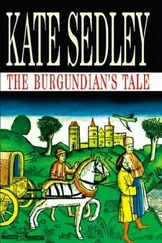Kate Sedley - The Midsummer Rose
Здесь есть возможность читать онлайн «Kate Sedley - The Midsummer Rose» весь текст электронной книги совершенно бесплатно (целиком полную версию без сокращений). В некоторых случаях можно слушать аудио, скачать через торрент в формате fb2 и присутствует краткое содержание. Жанр: Исторический детектив, на английском языке. Описание произведения, (предисловие) а так же отзывы посетителей доступны на портале библиотеки ЛибКат.
- Название:The Midsummer Rose
- Автор:
- Жанр:
- Год:неизвестен
- ISBN:нет данных
- Рейтинг книги:5 / 5. Голосов: 1
-
Избранное:Добавить в избранное
- Отзывы:
-
Ваша оценка:
- 100
- 1
- 2
- 3
- 4
- 5
The Midsummer Rose: краткое содержание, описание и аннотация
Предлагаем к чтению аннотацию, описание, краткое содержание или предисловие (зависит от того, что написал сам автор книги «The Midsummer Rose»). Если вы не нашли необходимую информацию о книге — напишите в комментариях, мы постараемся отыскать её.
The Midsummer Rose — читать онлайн бесплатно полную книгу (весь текст) целиком
Ниже представлен текст книги, разбитый по страницам. Система сохранения места последней прочитанной страницы, позволяет с удобством читать онлайн бесплатно книгу «The Midsummer Rose», без необходимости каждый раз заново искать на чём Вы остановились. Поставьте закладку, и сможете в любой момент перейти на страницу, на которой закончили чтение.
Интервал:
Закладка:
Saint Giles lay at the Bell Lane end of Small Street, in the direction of the river Frome. These days, and for many years past, it had shared a priest with both Saint Leonard’s and Saint Lawrence’s, which meant that for much of every day it was deserted, except for the occasional private worshipper. The main entrance was on the quay side of the building, in Jewry Lane, but there was another, smaller door giving access from Bell Lane, and it was this, being the nearer, that Adela and I always used.
Saint Giles was not an old church compared with many others in the city. It had been built, so I had been informed, about a hundred and fifty years ago on the site of the old Bristol synagogue, which had fallen into disrepair following the expulsion of the Jews from England in the reign of the first Edward. Thrifty Bristol citizens had used much of the stone from the Jewish temple to construct Saint Giles; appropriate, perhaps, for a building in honour of a man whose life was dedicated to thrift, dwelling as he did in a cave and living on roots and the milk of a friendly deer.
The door creaked slightly as I pushed it open. The church was empty. I waited a moment for my sight to clear, then I cautiously made my way towards the altar where stood the saint’s effigy, painted plaster hand resting on the head of a golden doe whose body was pierced by a silver arrow, the huntsmen of King Flavius, as you will recall, having tried to shoot it. Whoever had carved the face of poor old Giles — a mentor of Charlemagne — had made him appear very bad-tempered. But then, who wouldn’t be, living on a diet of roots and doe’s milk?
I made my obeisance, then searched around until I found a small store of candles on a shelf near the sacristy. I placed one among the previous day’s dead offerings at the foot of the statue, but when I came to light it, I discovered I had left my flint and tinderbox at home in my pouch. Cursing, I was preparing to return to Small Street when a voice enquired, ‘Do you need a light?’
I nearly jumped out of my skin. I had heard no one enter the church, in spite of the creaking door, nor noticed anyone’s approach. Yet here was this young man standing beside me, smiling, genuflecting and offering me his flint and tinderbox at one and the same time.
‘Where … where have you sprung from?’ I asked, wishing there was something to sit on. My legs felt like jelly.
The young man laughed, but gave no explanation as to his sudden appearance.
‘Is this your candle?’ He nodded at the only fresh one amongst its burnt-out brothers, and, without waiting for my reply, proceeded to light it. ‘There! Now you can say your prayer.’
I thanked him. I could see him better in the glow from the candle flame. He was, I judged, about nineteen or twenty years of age, of middling height — the top of his head barely reached two inches above my shoulder — with the straightest hair I had ever seen. Straw-coloured, there was no vestige of curl or even a kink anywhere in it, and it fell, like the proverbial yard of pump water, to just below his ears and was cut in a fringe across his forehead. His skin was as pale as his hair, but he was saved from anonymity by an enormous pair of sapphire-blue eyes, sparkling with life. Looking into them, I was suddenly and vividly reminded of what it meant to be young, to be just starting out on life’s great adventure, when anything was possible, danger non-existent; when the words ‘responsibility’, ‘wife’, ‘children’ and ‘family’ were as alien as the moon; when these things belonged to other people, unfortunate souls; when the world lay before you for the taking.
Fighting down a surge of envy and nostalgia, I asked, ‘What’s your name?’
He bowed mockingly. ‘Luke Prettywood, and I’m chief assistant to Alderman Alefounder at the Newgate brewery.’
Now there was a coincidence! Too much of one for comfort. I was seized with a sneaking suspicion that God was meddling in my affairs again.
‘And what brings you to Saint Giles, Master Prettywood, so early in the morning?’
He was entitled to tell me to mind my own business, but he only laughed and said, ‘I know who you are. You’re Roger Chapman, the pedlar, who was left the old Herepath house in Small Street by Cicely Ford. You have a reputation for being nosy.’ Which, of course, was just another way of saying the same thing.
The Bell Lane door creaked open again and we both turned to see a woman’s figure outlined in the doorway. The noise and bustle of the street momentarily intruded on the quiet of the church; the sounds and smells of the nearby livery stables assaulted our ears and nostrils. Whoever it was hesitated for a second, as though taken aback by our presence, before stepping inside and closing the door. She drifted towards us across the rush-strewn floor, the skirt of a pale silk gown billowing in the draught, and I could see her eyes blink as they adjusted to the gloom of the nave.
‘What are you doing here, Luke?’ she asked in a light, fluting voice. ‘I thought you’d returned to the brewery ages ago.’
I recognized her at once. Marianne Avenel, she who had been Marianne Alefounder before her marriage, had become a familar figure in the immediate vicinity since her marriage to Robin Avenel some sixteen months earlier. The couple had taken up residence in a house I had once known well, the late Alderman Weaver’s house in Broad Street, bought for them by Robin’s father, Peter Avenel, a soap manufacturer and one of Bristol’s richest citizens.
Marianne was the sort of girl who would always be known as ‘a pretty little thing’ even when she was nearing thirty. At present, I guessed her to be a good ten years short of that, but her kittenish, heart-shaped face with its soft, pouting lips, wide-set, luminous grey eyes and peach-like cheeks would alter very little with the passage of time. Nor would the air of faint dissatisfaction that clung to her like a second skin. I’ve met many women like her throughout my life; women who think that their looks entitle them to the admiration of the world in general and of men in particular. I have never pandered to their delusion, however attractive they might be, and I had no intention of doing so with Marianne Avenel.
Consequently, I gave only the briefest of bows in answer to the brilliant smile she bestowed upon me, and remained unmoved by the seductive flutter of her charcoal-darkened eyelashes. Huffily, she turned back to my companion.
‘I asked you what you’re still doing here, Luke. My father will be wondering where you are and he’ll blame me for delaying you. You have my answer to his message.’
‘I came to say a prayer for the repose of my sister’s soul,’ the brewer’s assistant answered, assuming a pious expression. ‘You’ll recall, mistress, that she died last year.’
I doubted this. Oh, not that his sister had died. He would hardly risk a lie if Marianne Avenel knew better. But his response had been altogether too glib, and I had so far detected no sign of any grief in his demeanour. Moreover, his thin, mobile mouth twitched with amusement as he clasped the little hand, impulsively extended to him, and raised it to his lips.
‘Oh, Luke! I’m so sorry! How thoughtless of me not to remember! She’s buried here, isn’t she, in the crypt?’
He nodded, his pleasant face sobering as if he were indeed beset by memories of the dead girl.
‘Would you … Would you care to see her coffin?’ he asked tentatively. ‘Would you let me escort you down to the crypt? The stairs are rather dark, but I have my tinderbox. I can light a candle.’
I half expected Mistress Avenel to refuse. I doubted if the crypt and the stairs leading to it were very clean, and she was wearing a gown of pale yellow sarcenet. Her little feet were shod in cream leather. But she nodded good-naturedly.
Читать дальшеИнтервал:
Закладка:
Похожие книги на «The Midsummer Rose»
Представляем Вашему вниманию похожие книги на «The Midsummer Rose» списком для выбора. Мы отобрали схожую по названию и смыслу литературу в надежде предоставить читателям больше вариантов отыскать новые, интересные, ещё непрочитанные произведения.
Обсуждение, отзывы о книге «The Midsummer Rose» и просто собственные мнения читателей. Оставьте ваши комментарии, напишите, что Вы думаете о произведении, его смысле или главных героях. Укажите что конкретно понравилось, а что нет, и почему Вы так считаете.
